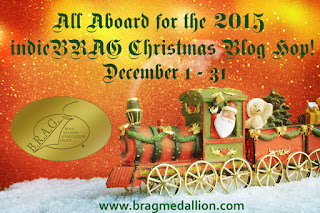In Praise of Editors
Yes, I taught English for....many years. Yes, I'm good at commas and quotation marks and all their little friends. I know about story arcs and character development and figurative language. That does NOT mean I don't need a bunch of helpful friends and professionals to check my work.
I start with a first reader. This person reads the manuscript in really rough form and gives me feedback on what she sees as its strengths and weaknesses. With her "outside" view (meaning outside my head), I begin to see where I spent too much time with unnecessary explanation or where I didn't "take the reader with me" on a plot point. I kind of feel sorry for my first reader, because she often has to piece things together and wade through a lot of junk that won't make the final cut.
When I've reworked the story to my satisfaction, I hire a content editor. This is a professional who will comment on the story's development, strengths and weaknesses. I've had some really good ones, and two that were really bad. My most recent bad experience might sound good to some; the guy said the book was "fine" and only changed a word here and there.
Um, no.
Though I've heard of authors whose work is nearly perfect from the get-go, that is not me. I know I need someone to point out things like repetition of a plot point and weak descriptions. Therefore, an editor who says the book is "fine" is either lazy or he's lying. Probably both.
Anyway, the content editor should give a writer lots to work on as she does the next rewrite. This is the meaty part of the process, where the book starts getting good.
The next editor is a line editor, who looks at sentence structure with the idea of making the prose as polished and effective as it can be. Sometimes a content editor does both, and that's the way I like to go, since I have a strong sense of how I want to say things. I also use a program called SmartEdit, which helps me look for repeated words, boring sentence starts, adverb usage, trite phrases, etc. Keeping an eye on those things helps to move my writing to a higher plane.
When I'm happy with the story and the way I've told it, my copy editor finds mistakes in spelling, punctuation, word usage, etc. It's tedious work, looking line by line for quotation marks that don't close or a comma where there should be a semicolon. I pay this person, because she needs to be motivated. Yes, your aunt might have a degree in English, but if she's just reading to be nice...
The last (but not least) of the pre-publication helpers are beta readers. These people usually don't get paid; they like getting their hands on a book before anyone else does. Since the files are set up differently, I have one group for print and one for e-books. These people come in at "crunch time," when the book is only weeks from publication, so they can't dilly-dally or shilly-shally or whatever. For The Trouble with Dad, I handed out print copies and e-files last week, giving my beta readers two weeks to read and respond. I got my first one back yesterday, and she only found one error, which gives me a teeny-tiny sense that things are going to be okay.
Here's the thing: a book has one person's name on the cover, but there are (or there should be) many others who make it readable for you, the one who spends hard-earned cash on it.



Comments
Post a Comment